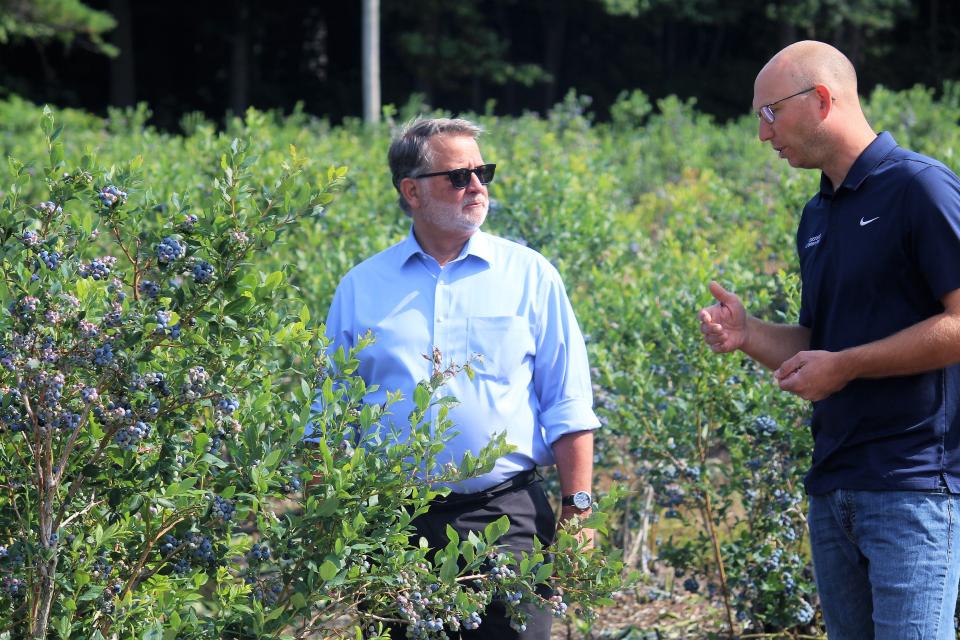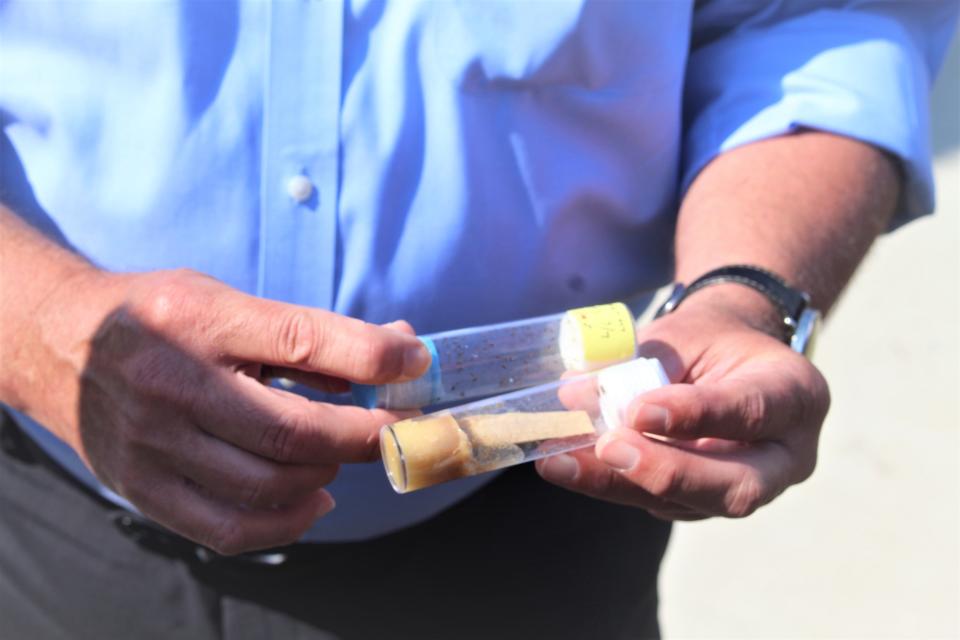West Michigan blueberry farms are struggling with an invasive pest. Gary Peters wants to help.
- Oops!Something went wrong.Please try again later.
WEST OLIVE — Since 2010, an invasive vinegar fly called spotted wing drosophila has attacked berry and cherry crops in Michigan, heightening economic challenges for farmers. Researchers think they’ve found a solution in a tiny wasp, but they need research funding.
That funding is included in the Spotted Wing Abatement Trust Act, introduced by Michigan Sen. Gary Peters for inclusion in the 2023 Farm Bill. Peters visited Crossroads Blueberry Farm in West Olive on Friday, July 14, to discuss the plan and his legislation.

Peters first introduced the SWAT Act last August and reintroduced it in February. It would provide $6.5 million annually for five years to support accelerated research on SWD.
More: Sen. Gary Peters introduces SWAT Act in attempt to aid Michigan fruit farmers
The fly, which is native to East Asia, is estimated to cause over $700 million in economic loss each year by infecting crops.
“There’s no question this has a significant negative economic impact for growers all across the country and Michigan in particular,” Peters said. “We are a leader in specialty crops like blueberries and cherries, so this particular pest has a particularly big impact on Michigan.”
Stores and distributors have a zero tolerance policy for SWD, meaning one berry infected with SWD could lead to entire shipments being rejected. Because of that, farmers must spend time and money applying pesticides to prevent the insects from attacking their fruit.

A potential solution comes from a natural predator of SWD, also native to East Asia. Samba wasps are extremely tiny insects selective in feeding on SWD and don’t cause harm to humans or crops.
Samba wasps gained approval for release by the USDA in 2022 and were released on a handful of fruit farms in Michigan, including Ottawa County. Further research is needed, though, to determine if the wasps can survive the winter and how effective they'll be at controlling SWD.
“That’s why we came up with a figure of $6.5 million to help Michigan State (University) and other universities and entities working on this project around the country," Peters said.
Luke DeHaan, one of the owners of Crossroads Blueberry Farm, said he’s excited about the samba wasps being a possible solution and hopes funding for further research is approved. He said around 25 percent of money spent on materials goes toward SWD prevention.
“A quarter of what we spend is just trying to control this one pest,” DeHaan said. “Hopefully (using samba wasps) will bring the numbers down and then it’s just that much easier to manage. Ideally, we find something that eliminates all (SWD).”

If the samba wasps prove to be an effective solution, it will also reduce the amount of pesticides needed to maintain crops.
“If we can find a natural way to deal with this pest, that’s a win-win for everybody," Peters said.
Subscribe: Receive unlimited access to your local news coverage
The SWAT Act is a bipartisan effort between Peters and Sens. Susan Collins (R-Maine), Mike Braun (R-Indiana) and Jeff Merkley (D-Oregon).
"This is a $700 million problem," Peters said. “It’s a small investment with a big return."
— Contact reporter Mitchell Boatman at mboatman@hollandsentinel.com. Follow him on Twitter @SentinelMitch.
This article originally appeared on The Holland Sentinel: West Michigan blueberry farms are struggling with an invasive pest. Gary Peters wants to help.

